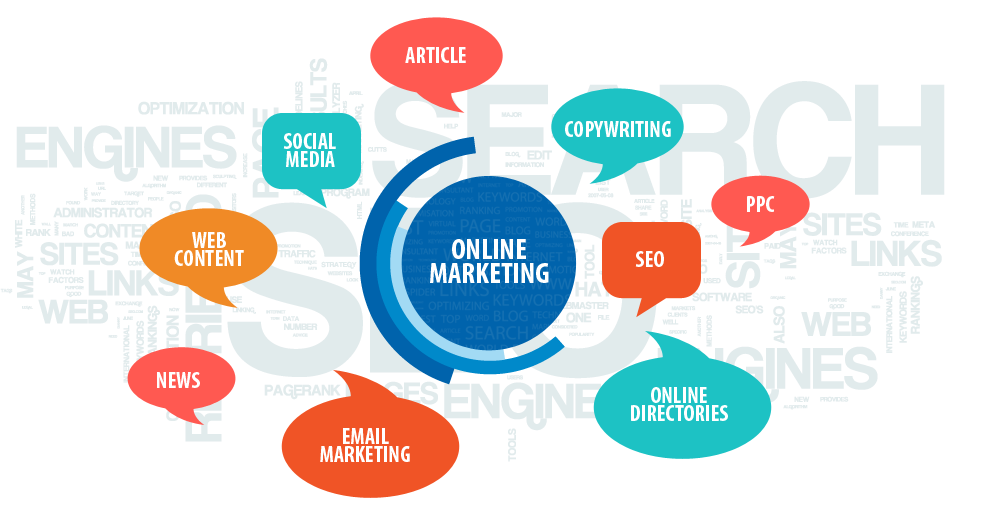
Online marketing in the Middle East can be extremely rewarding for those who are willing to engage in this rapidly growing region. With many market niches with little to no competition in the region those who invest wisely could see huge returns. Despite this, there are still many mistakes that companies seeking to grow their online presence in the region can make. Some mistakes can decrease a company’s potential return in the region while other mistakes could result in tarnishing a company’s reputation in the region. In this post I will highlight 6 common online marketing mistakes that companies new to the region often make.
1. Forgetting to optimize your website for mobile
Regardless of where you live in the world smart phone usage rates are going up significantly. Growth in smart phone usage in the Middle East surpasses most regions in the world. In Saudi Arabia for example more than 60% of the population has adopted smartphones. Failing to make your website mobile friendly in both Arabic and English could cost you leads and sales.
2. Neglecting currency differences
Many companies who have sought to have a strong presence across the MENA region online have made the mistake of listing their products in services in a foreign currency. If you have ever traveled to a different country where they use a different currency you know how frustrating it can be to have to do the math and calculate the cost in your own currency. This is the same for online shoppers in the Middle East if you fail to provide the cost of your products in the local currency you could miss out on a sale.
3. Not translating your site into Arabic
This probably goes without saying but if a website isn’t available in the your audiences first language there is a high likelihood they will not end up converting or buying something on your site. Regardless of whether or not your audience speaks English in addition to Arabic they most likely prefer reading content in their native tongue.
4. Not taking culture and religion into account
A company can face major repercussions from forgetting to pay attention to local culture and religion. Just because a product or service you offer doesn’t raise any concerns in Europe or the United States doesn’t mean it won’t in the Middle East. With many countries in the Middle East holding strongly to conservative values and traditions is not that hard to offend someone in the region. Channel for example faced criticism for creating a low cut dress with Arabic words from the Quran on it. Nike had to recall a pair of shoes that they made that unintentionally appear to have the name Allah written on the back of the shoes. Cross-cultural specialists should always be consulted with to avoid these kinds of mistakes.
5. Not doing thorough research on the Middle East countries you want to target
Did you know that in many Middle Eastern countries it is extremely rare to see a snack or soda vending machine? This is typically because the cost of labor is so inexpensive in some countries it doesn’t make fiscal sense to invest in a vending machine. This goes to illustrate a point that a product or service that may have a great market in other regions of the world may not have much appeal in the Middle East. The opposite can also be true. Many products and services that have little to know market in the Western countries do well in the Middle East. For example in the Arabian Gulf large group weddings where multiple couples get married are common. A company that provides services for group weddings could do very well in Dammam Saudi Arabia but this company would fail in the UK. Do your research or hire another company to do it for you to make sure you have a viable market before you invest large sums of money on Middle East online marketing.
6. Assuming the same strategy will work across all countries in the Middle East
Despite the fact that a large percentage of the population in the Middle East speaks Arabic there are actually quite a few differences between the different regions and countries of the Middle East and North Africa. The GCC, for example, is made up of several oil rich Arab states including countries like Saudi Arabia and the United Arab Emirates. In these countries there is a high demand for middle class and luxury goods and services. Egypt on the other hand is the most populous country in the region and has a much larger lower class. Though both markets are viable and thriving online markets taking the same approach to both for all kinds of products would be unwise.
Conclusion
Doing business online in the Middle East and North Africa can be a very lucrative and rewarding venture, however before you embark make sure you do your research. There many great opportunities for market entry in the region for companies that spend time working to understand this region, its culture, and various aspects online marketing in the MENA region.
Source: http://istizada.com/blog/6-common-middle-east-online-marketing-mistakes/

 MEWS is a full service web development Internet marketing company and technology integrator founded in 2003, by leading industry consultants with previous technology experience.MEWS is an Internet services and solutions company with interests in website development – Mobile applications– domain name registrations - web hosting.
MEWS is a full service web development Internet marketing company and technology integrator founded in 2003, by leading industry consultants with previous technology experience.MEWS is an Internet services and solutions company with interests in website development – Mobile applications– domain name registrations - web hosting.